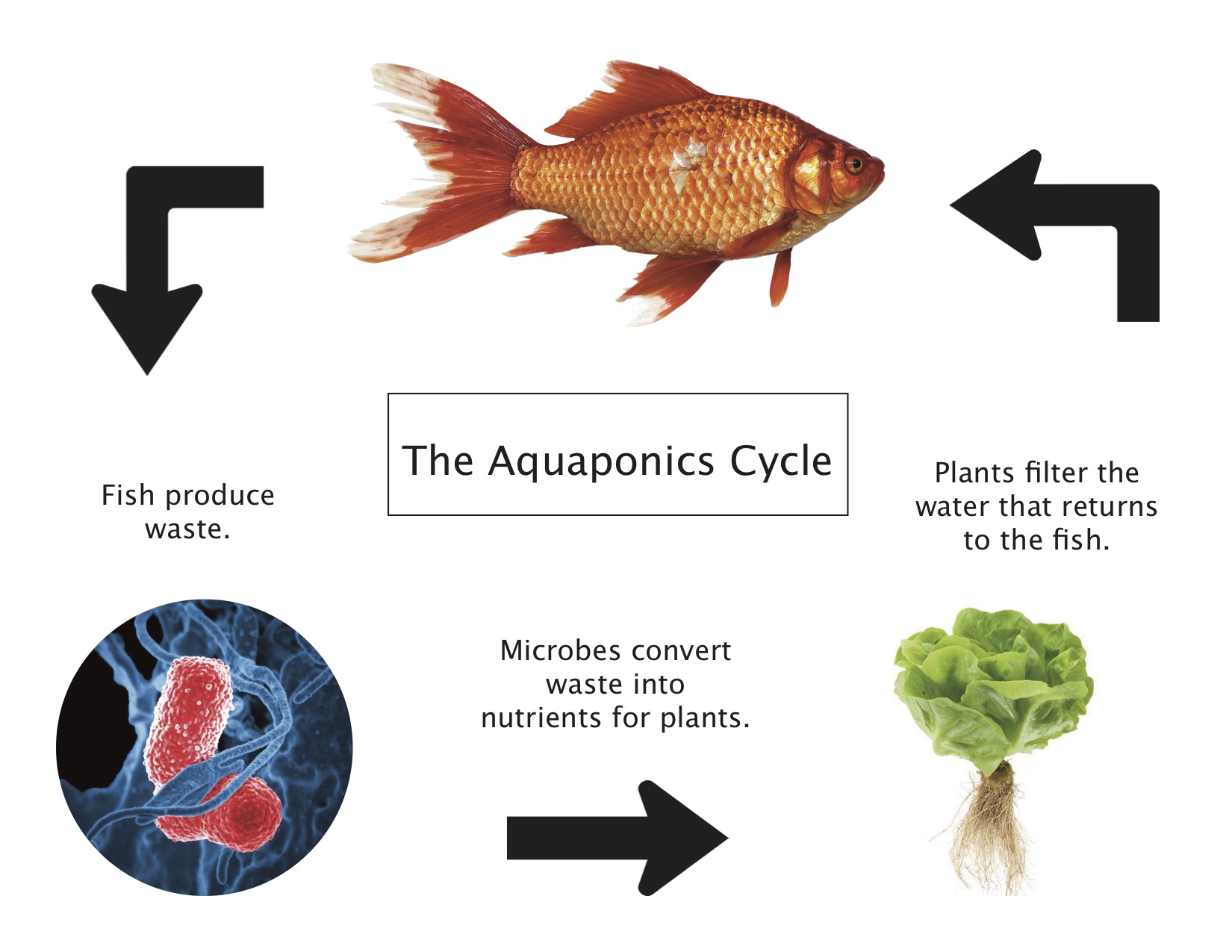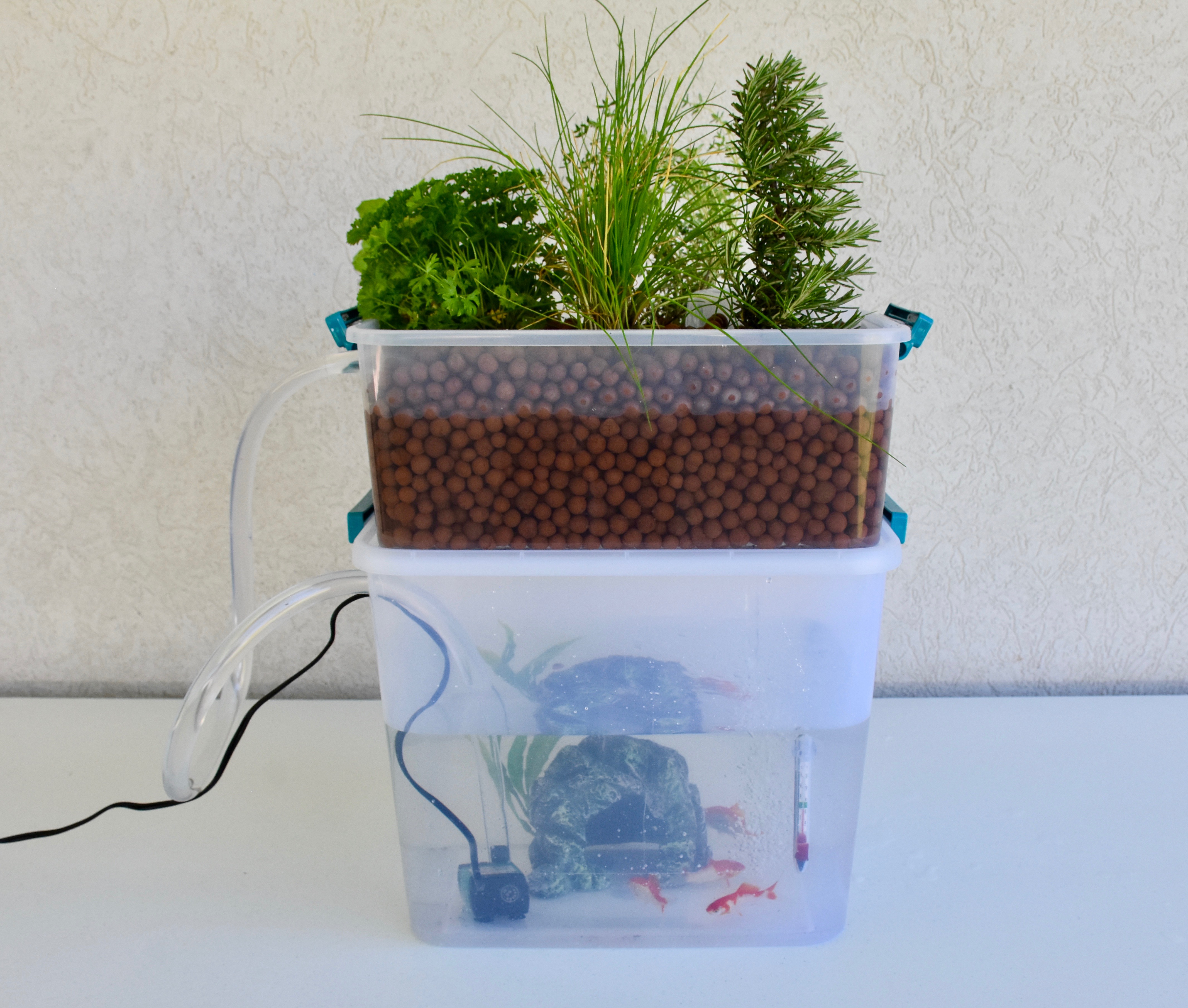Exploring Aquaponics (Grades 3-5)
Students identify the basic needs of plants and fish and engineer, assemble, maintain, and observe a small-scale aquaponics system that meets plant and fish needs.
Background
Lesson Activities
Recommended Companion Resources
Credits
Author
Lynn Wallin | National Center for Agricultural Literacy (NCAL)
Acknowledgements
- Activity 1 was adapted from the lesson What Do Plants Need to Grow? created by the California Foundation for Agriculture in the Classroom.
- Classroom Aquaponics System Assembly and Maintenance Guide created by Joe Furse for the National Center for Agricultural Literacy.
Standards
National Content Area Standards
- Science
- 3-5-ETS1: Engineering Design
- 3-5-ETS1-1: Define a simple design problem reflecting a need or a want that includes specified criteria for success and constraints on materials, time, or cost.
- 3-LS4: Biological Evolution: Unity and Diversity
- 3-LS4-3: Construct an argument with evidence that in a particular habitat some organisms can survive well, some survive less well, and some cannot survive at all.
- 3-LS4-4: Make a claim about the merit of a solution to a problem caused when the environment changes and the types of plants and animals that live there may change.
- 4-LS1: From Molecules to Organisms: Structures and Processes
- 4-LS1-1: Construct an argument that plants and animals have internal and external structures that function to support survival, growth, behavior, and reproduction.
- 5-LS1: From Molecules to Organisms: Structures and Processes
- 5-LS1-1: Support an argument that plants get the materials they need for growth chiefly from air and water.
- 5-LS2: Ecosystems: Interactions, Energy, and Dynamics
- 5-LS2-1: Develop a model to describe the movement of matter among plants, animals, decomposers, and the environment.
- 3-5-ETS1: Engineering Design

